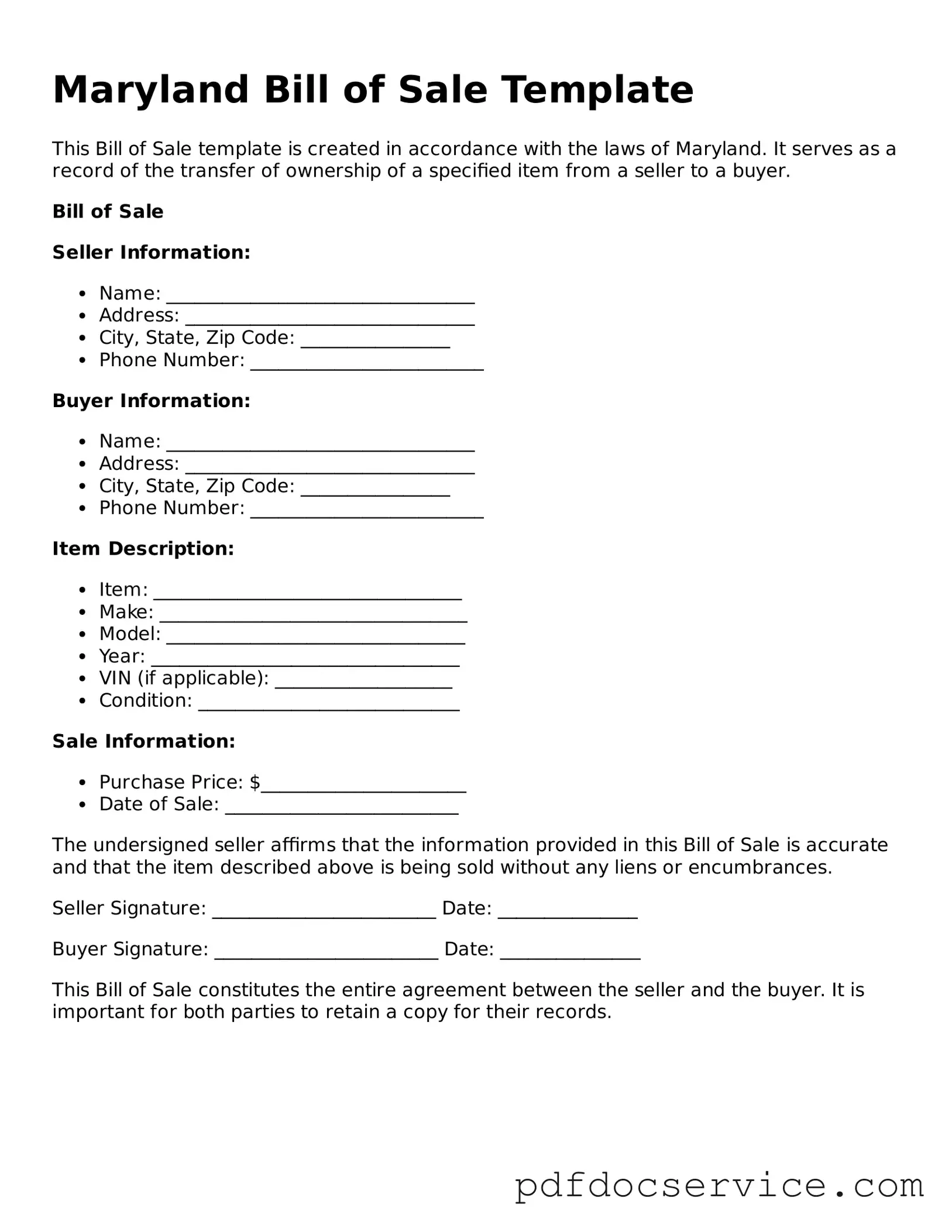Printable Bill of Sale Template for Maryland
The Maryland Bill of Sale form is a legal document that records the transfer of ownership of personal property from one party to another. This form serves as proof of the transaction, detailing essential information about the buyer, seller, and the item being sold. Understanding how to properly use this form is crucial for ensuring a smooth and legally binding sale.
Open Bill of Sale Editor

Printable Bill of Sale Template for Maryland
Open Bill of Sale Editor

Open Bill of Sale Editor
or
Get Bill of Sale PDF
Finish the form now and be done
Finish Bill of Sale online using simple edit, save, and download steps.